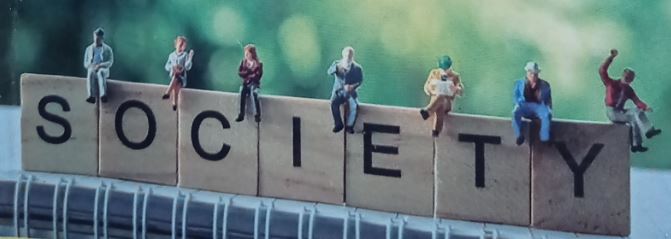Author: Cozmin Gușă
This summer I worked, but I managed to read more than usually, several of my friends did the same, out of a necessary instinct to partially escape from the reality of today’s concentration camp. Today I recommend a book worth reading, written by Will Durant, perhaps the most important historian of civilization (Heroes of of history, Litera Publishing House). The book appeared in 2022, but it was written about 45 years ago, during the last days of the author’s life, who left us in 1981, at the age of 96. I’m not going to summarize the book, but I will transcribe here a short excerpt that is disturbing in its depth and vision; you will agree after reading that it summarizes exceptionally how human civilization has managed to develop, while also identifying the causes of the current decline. Durant’s merit is all the greater because he wrote it 45 years ago, living in the affluence of Western civilization then at its cultural and material zenith.
” (…) The instincts of the hunting stage were controlled partly by law and law enforcement, but also by a precarious general agreement called morality. The impulses of greed were kept in check by the outlawing of robbery and the condemnation of avarice and the unequal concentration of wealth. Fighting spirit was limited by punishing injuries to persons or property. The sexual instincts – only slightly weaker than hunger – were disciplined to a manageable level of order by forbidding their display and by trying to channel them from an early age into a responsible marriage.
How was that complex moral code – so alien to our nature, so irritating with its “Thou shalt not …” – inoculated and maintained by five special institutions that are all in ruins today: the family, the church, the school, the law, and the public opinion that they all helped form? In the agricultural regime, the FAMILY teaches us the uses and comforts of association and mutual aid; the mother guided and taught her daughters to take care of the house; the father guided and taught his sons to care for the land; and this double-headed guidance laid the foundations of a powerful parental authority.
RELIGION supported moral obligations by attributing them to an all-seeing God who rewards as well as punishes. teachers (SCHOOL) passed on this code accepted by divinity through teachings and example; and their authority was strengthened, until the 20th century, by this connection with religion. LAW supported large parts of the code through fear and organized force. PUBLIC OPINION kept immorality in check, with adjectives and scorn, and encouraged right behavior with praise, promotion, and power.
Under this protective umbrella of social order, community life expanded, literature flourished, philosophy flourished, arts and science took wing, and historians recorded stimulating achievements of nation and being. Slowly, slowly, men and women developed moderation, friendship and courtesy, moral conscience and aesthetic sense, which are intangible and precious graces of our heritage. Civilization is social order that promotes cultural creation.
But what if the forces that succeeded in establishing order and civilization fail to preserve it? THE FAMILY was weakened by the disappearance of community work, which held all members together, on the farm; of the individualism that dispersed jobs and sons; and of the erosion of parental authority by the mental freedom, utopian aspirations and natural rebellions of youth.
RELIGION was weakened by the growth of wealth and cities; of the exciting evolution of science and historiography; of the transition from fields that proclaim humanist life to factories that glorify physics, chemistry and the glory of machinery; and the replacement of hopes
heavenly with earthly states. Our educational system (SCHOOL) is discouraged by class and race struggle, by armed minorities presenting themselves with “non-negotiable demands”, by overwhelmed revolted taxpayers, by the collapse of bridges between generations, between experiment and experience. LAWS lose their hardness by their multiplication and partiality, by the corruption of the legislators, by the improvement of the means of evasion and concealment, and by the difficulty of their enforcement among a population which is multiplying uncontrollably. PUBLIC OPINION loses its strength through division, fear, apathy and the universal worship of wealth.
Thus the old instincts return, unleashed and wild, and degenerate into riots, crime, gambling, corruption, unscrupulous moneymaking, and a sexual chaos in which love is
free sex for men and dangerous for the human race. Negotiation allows confrontation; the law obeys the force of the minority; the marriage it becomes a short-term investment in various uncertainties; reproduction is left to the unlucky or misfits; and the fertility of incompetence multiplies the human race from the root, while the sterility of intelligence facilitates its withering towards the top.
But it may be that the current excess of paganism gives some hope that the situation will not last; because excess usually gives rise to its opposite. One of the most common successions in history is that of a period of discretionary paganism followed by an age of strict puritanism and moral discipline. So the moral decay of ancient Rome under Nero, Commodus and other emperors after him was followed by the rise of Christianity and its official adoption and protection by the emperor Constantine as a source of salvation and support for order and decency.
The mercenary violence and sexual licentiousness of the Italian Renaissance under the Borgia dynasty led to the purification of the Church and the re(un)establishment of morality. The reckless ecstasy of Elizabethan England gave way to Puritan rule under Cromwell, which led, as a reaction, to the paganization of England under Charles II. The Collapse of Government, Marriage and Family in the Ten Years of French Revolution ended with the re-establishment of law, discipline and parental authority under Napoleon I;
Byron and Shelley’s romantic paganism and the decadent behavior of the Prince of Wales, who became George IV, were followed by the public decency of Victorian England. Were these precedents to guide us, we can expect our grandchildren and great-grandchildren to be Puritans.
But there are more pleasant prospects in history than this oscillation between excess and its opposite. I will not subscribe to the depressing conclusion of Voltaire and Gibbon that history is “the record of the crimes and follies of mankind.” Of course it is partly that, containing millions of tragedies—but it is also the saving reason of the common family, the work and love of the men and women who have carried life forward, over a thousand obstacles. It is the wisdom and courage of statesmen like Winston Churchill and Franklin
Roosevelt, the latter dying exhausted but fulfilled; it is the tireless effort of scholars and philosophers to understand the universe which surrounds them; it is the patience and skill of artists and poets to give lasting form to fleeting beauty, or illuminating clarity to subtle meanings; it is the vision of the prophets and saints who challenge us to be noble.
(…) the gifts they gave us represent the incredible heritage of humanity, the golden thread from which the fabric of history is woven. We must not turn a blind eye to the evil that tempts us—we should work tirelessly to diminish it—but we can take power from past achievements; the splendor of our heritage.
Let us, to paraphrase the hapless Shakespearean king, let us place and troubleshoot brave stories of noble women and of great men.”
(Will Durant, 1885-1981, was an American writer, historian, and philosopher. He is best known for his 11-volume work “The Story of Civilization”, written in collaboration with his wife, Ariel Durant, and published between 1935 and 1975. They received the Pulitzer Prize in 1968 and the Presidential Medal of of Freedom in 1977.)











